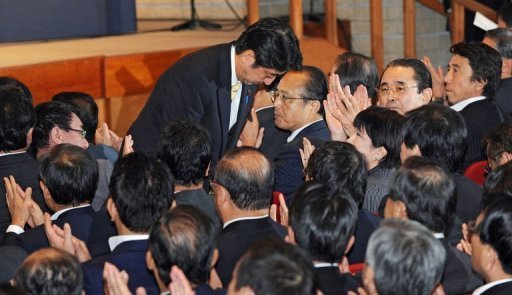Today’s Arab media is rife with paradox. Compared to only a decade ago, today’s Arab world enjoys a dizzying variety of television stations, newspapers and internet sites. The news and political discourse in these media outlets have decisively shattered the ability of states to monopolize information or control public opinion. But while technological trends have fueled the growing power and freedom of the Arab media, Arab states seem determined to fight it every step of the way. Tightening media laws, unsubtle harassment of journalists and independent media outlets and violence continue to cast a black cloud over Arab media freedoms. Before giving in to despair at the bleak realities of the region’s media, it is worth remembering how far the Arab media has come in only a decade. Before Al-Jazeera, which launched in 1996, virtually all of the electronic Arab media and most newspapers suffered from tight state control. While some London-based newspapers enjoyed more freedom, they had relatively limited audiences. The media landscape today could hardly be more different. A wide range of satellite television stations compete for regional market share, including not only Al-Jazeera, but also the Saudi-backed Al-Arabiya, a variety of Gulf, Lebanese and Egyptian channels and a growing number of Western-backed stations. High quality independent newspapers such as Egypt’s Al-Masry al-Youm and Al-Dustour and Jordan’s Al-Ghad have established themselves as major political forces. Blogs and internet sites allow for an ever wider zone of public discussion and debate. But such optimistic trends are tempered by the harsh political realities of the region. For all their path-breaking contributions to political discourse, satellite television stations such as Al-Jazeera and Al-Arabiya remain to varying degrees subordinate to the political interests of their state sponsors. Independent newspapers operate at the sufferance of regimes that too often move harshly against those that violate the red lines. For instance, Morocco has seen a troubling series of lawsuits against the independent press and journalists such as Aboubakr Jamai, TelQuel and Le Journal Hebdomadaire. Syria’s first private satellite TV station, Al-Sham, was closed down the day it was scheduled to air its first news broadcast. The Jordanian Parliament this year passed a harshly punitive press and publications law. The Egyptian regime, despite its tolerance of a contentious political press, has been escalating its repressive campaign against political bloggers and independent journalists. The Saudi media remains tightly controlled, even if its margins of freedom sometimes widen. Across the region, journalists have little access to information and little protection from vengeful regimes. What is more, Arab journalists face great risks to life and limb (especially in Iraq). Atwar Bahjat, a courageous young female reporter for, first, Al-Jazeera and then Al-Arabiya, has become a symbol of the plight of Arab journalists since her brutal murder in Iraq last year. Samir Kassir and Gibran Tueni are only two of the Lebanese journalists murdered for their political writings. Dhayf al-Ghazzal, a Libyan journalist investigating corruption, was found dead in the desert. The independent Yemeni journalist Jamal Amer and his colleagues have faced serious threats and attacks. Al-Arabiya offices have been bombed in Iraq and in the Palestinian areas, while Al-Jazeera journalists have frequently been harassed, arrested and deported. Many other journalists across the region have faced beatings, threats, harassment and official intimidation – which have led many to practice self-censorship. These continuing pressures do not escape the notice of the public. A recent public opinion survey of four relatively “moderate Arab countries by the International Foundation for Electoral Systems found that very few citizens believe the media is independent or effective, or that journalists can do their work without fear of punishment. Some 58 percent of Jordanians, 48 percent of Egyptians and 45 percent of Moroccans felt that journalists did not “enjoy freedom of expression without fear of reprisal, and comparable numbers felt that “the media is not able to report openly on all types of issues . A more subtle threat to media freedoms is posed by regimes that use the media for “mobilizational purposes. Whether it is the Saudi media waging a campaign against “deviant ideas or the Egyptian media campaigning for President Hosni Mubarak, the media remains a tool of state power rather than a foundation for an autonomous public sphere. Recent sharp debates about the proper role for America’s Al-Hurra bring this problem into sharp focus: should an American-financed station hew to the party line and promote American foreign policy, or should it provide an open venue for contentious political discourse and set an example of democratic freedoms? Despite these grim realities, the trends favor media freedoms. Satellite television stations competing for market share and growing access to the internet both challenge state controls. But technology is not enough. Arab media freedoms depend on sustained political pressure, both from within and from the outside. Only a free, contentious media can build the foundations for pluralism, giving citizens access to information and the outlet to argue publicly about the core issues of political life. Western policymakers should offer a principled and consistent defense of media freedoms and independent media and accept no excuses from the Arab regimes that would prefer to crush them. Marc Lynch, associate professor of political science at Williams College, is the author of “Voices of the New Arab Public (Columbia University Press) and host of the influential Middle East politics blog, www.abuaardvark.com. This commentary first appeared at bitterlemons-international.org, an online newsletter publishing views of Middle Eastern and Islamic issues.

